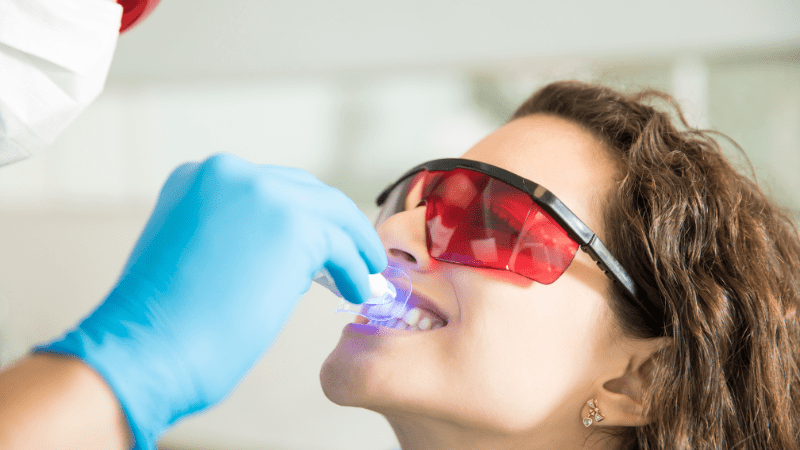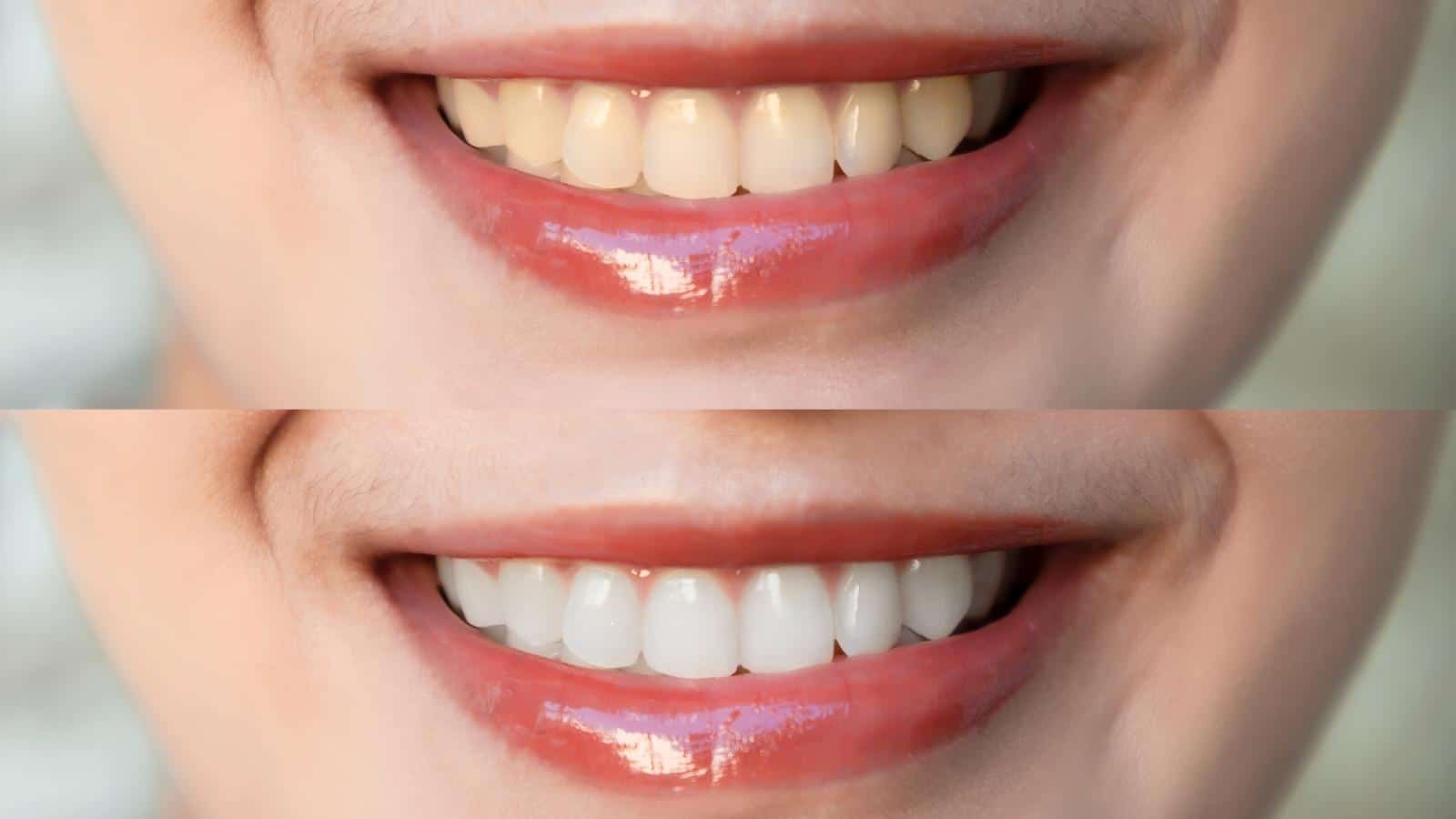
January 12, 2024
A bright, radiant smile is often considered a symbol of health and confidence. As a result, teeth whitening procedures have gained immense popularity in recent years. However, amidst the pursuit of a gleaming smile, concerns have emerged about the potential damage teeth whitening might cause to our precious tooth enamel. In this comprehensive guide, we’ll delve into the world of teeth whitening, exploring its methods, effects, and, most importantly, the impact it might have on the protective enamel of our teeth.
Understanding Teeth Whitening Methods
Teeth whitening methods come in various types, such as kits bought over the counter or professional treatments done by dentists. They all aim to make teeth brighter by using substances like hydrogen peroxide or carbamide peroxide. These substances work by getting into the enamel and breaking down stains, which reveals a whiter smile.
Over-the-counter whitening products like whitening toothpaste, strips, or gels are accessible and easy to use. They usually contain lower concentrations of whitening agents compared to professional treatments. These products are designed for regular use over weeks to whiten teeth gradually.
Professional teeth whitening, on the other hand, involves stronger whitening solutions applied by a dentist. This method often shows quicker and more noticeable results because of the higher concentration of whitening agents used.
Effects of Whitening Agents on Enamel
Whitening agents, like hydrogen peroxide and carbamide peroxide, are the main ingredients in teeth-whitening products. These agents work by getting through the enamel and breaking down stains to make teeth brighter.
When these agents come into contact with the enamel, they might cause some people to feel temporary tooth sensitivity. However, research generally suggests that when used correctly, these whitening agents don’t usually harm enamel.
Yet, if these products are used too much or too often, or if very concentrated solutions are used, it could weaken the enamel. This might lead to sensitivity issues and damage the protective layer of the teeth.
Protecting Enamel During Whitening Procedures
Consulting a Professional: Seeking advice from a dentist before starting any whitening procedure is crucial. A dental professional can assess your oral health and recommend the most suitable whitening method to minimize potential enamel damage.
Following Instructions Carefully: Whether using over-the-counter whitening kits or undergoing professional treatments, strictly adhere to the instructions provided. Pay attention to recommended duration, frequency, and application techniques to prevent enamel erosion.
Avoiding Overuse: Using whitening products excessively or for longer durations than recommended can weaken enamel. Stick to the specified treatment periods to achieve results without compromising enamel health.
Using Custom-Fit Trays: Custom-fit trays, commonly provided in professional whitening treatments, ensure the whitening solution stays on the teeth. It also minimizes contact with the gums and other sensitive oral tissues, reducing the risk of irritation.
Using Desensitizing Agents: Some whitening products contain desensitizing agents like potassium nitrate or fluoride, which help reduce sensitivity and strengthen enamel. Consider using these products to mitigate potential discomfort and protect enamel.
Alternatives for a Whiter Smile
Improving Oral Hygiene: Regular brushing and flossing help remove surface stains, naturally enhancing the brightness of your smile. Professional cleanings by a dentist effectively remove stubborn stains. As a result, it contributes to a whiter appearance.
Dietary Changes: Limiting consumption of teeth-staining substances like coffee, tea, red wine, and colored foods can prevent further discoloration. Drinking water after consuming such items helps rinse away potential stains.
Baking Soda or Hydrogen Peroxide: Using a paste of baking soda or hydrogen peroxide occasionally can act as a mild abrasive to remove surface stains. However, it’s important to use these methods sparingly to avoid damaging tooth enamel.
Activated Charcoal: Some people use activated charcoal as a natural whitening remedy. However, there’s limited evidence supporting its effectiveness, and excessive use may wear down enamel.
In the pursuit of a dazzling smile, it’s crucial to prioritize dental health. Teeth whitening, when done responsibly and under professional guidance, typically does not pose significant risks to tooth enamel. However, caution and moderation are vital to prevent potential sensitivity and enamel damage. Remember, consulting with a dental professional remains the best approach to determine the most suitable whitening method for your individual needs while ensuring the protection of your tooth enamel.
Brighten your smile at Randall Pointe Dental with expert teeth whitening services. Visit our dental office in for a radiant, confident smile that shines with personalized care.






